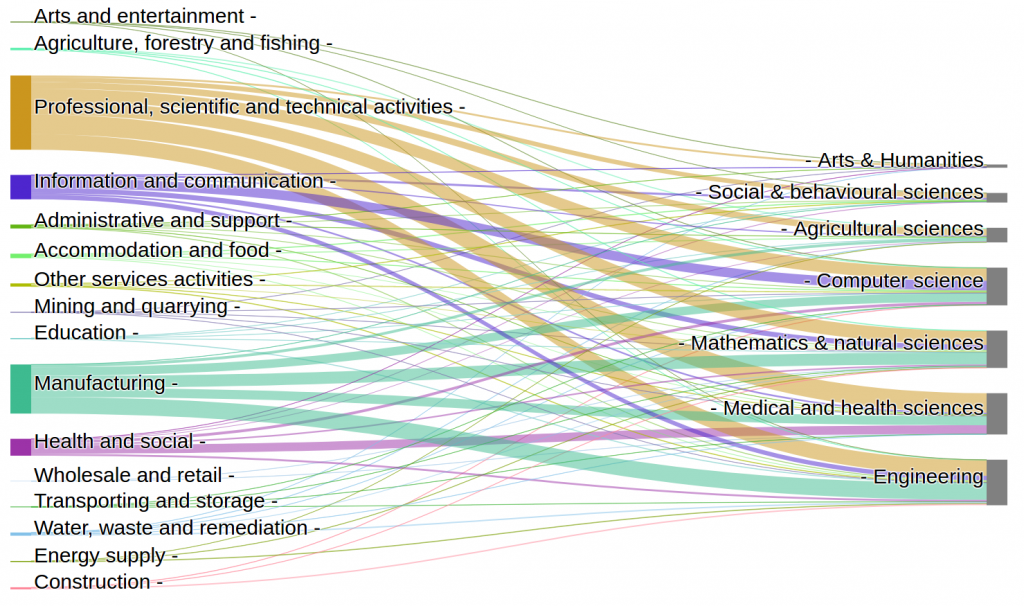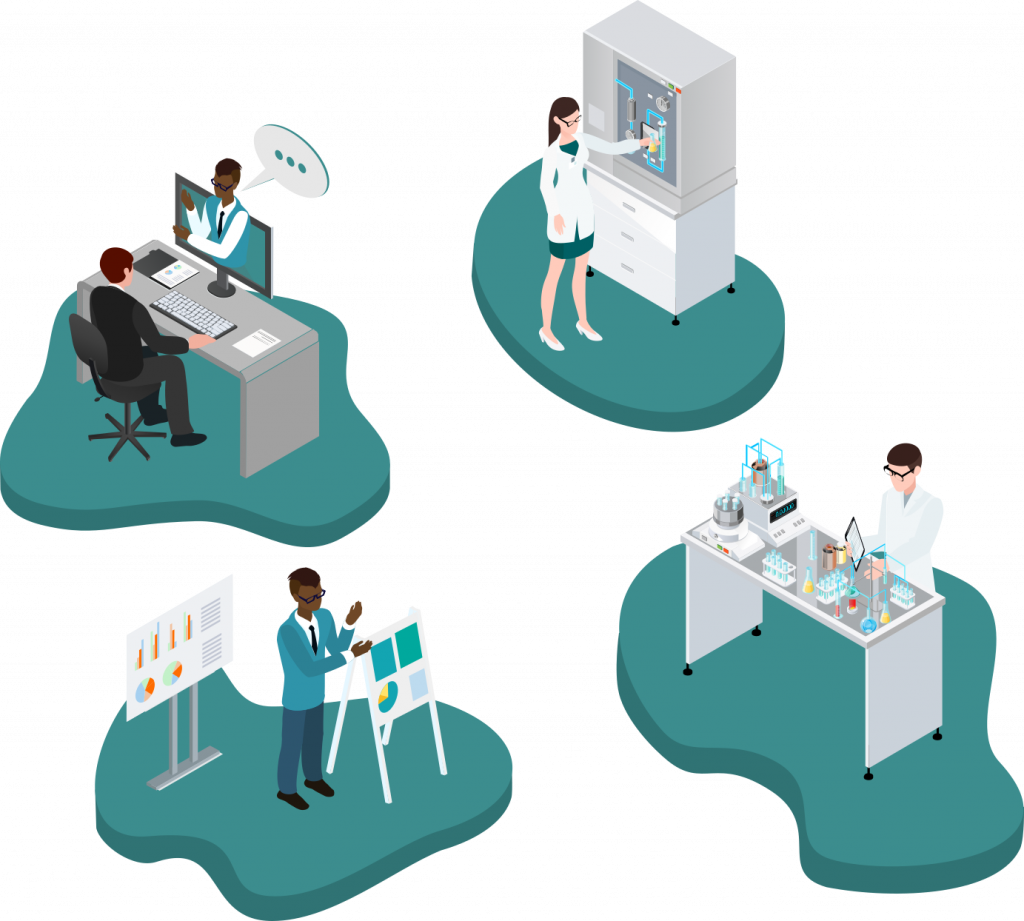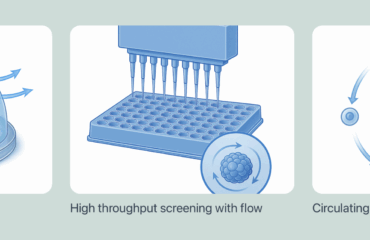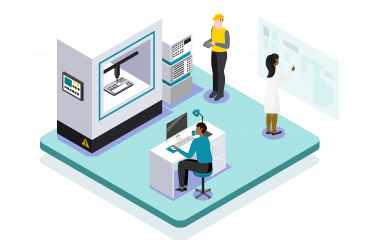Rapid scientific advancements enable the development of exciting new technologies. More than ever before this involves multidisciplinary challenges requiring skills and know-how from physics, chemistry, biology, and informatics. This level of complexity often makes it harder for companies to define and describe to universities and research organisations which type of expert they want to hire. QuestPair has performed a detailed survey and investigated the type of scientific expertise that companies believe they require. Figure 1 displays different economic sectors in which the companies operate and the different scientific disciplines that they are interested in. For example activities manufacturing requires combined expertise from computer sciences, natural sciences, medical and health sciences and engineering.

Pairing business with science
Companies can post their challenges on QuestPair, to which scientists and engineers can apply with a brief project proposal. Depending on the subjects, these can be freelance experts or scientific experts working in universities and research institutions. By evaluating the applications posted by scientists and engineers, companies can compare different approaches and select and hire those that seem most promising to them. Depending on the goals and needs of each company, there are different types of projects to which scientific experts and engineers can contribute.
Contract research
Companies are always looking for new opportunities to grow and develop new products or tools, which often starts with a better understand the fundamental science behind their products or production process. Universities and research institutes have the experts, facilities, laboratories and equipment to perform long-term research and create new knowledge through experiments, modelling and theory. After analysing the available knowledge and formulating research questions scientific experts can draw up a research plan.
Multidisciplinary research
Typical examples of multidisciplinary research are the formulations used in food products, cosmetics, paints and coatings, medicines, displays, energy storage, electronics, construction and smart materials. For example plant-based meat alternatives, batteries, and specialist building materials contain many different ingredients. The complex physical, chemical, and biological interplay between different components within a mixture can strongly affect properties such as its taste, structure, appearance, flow behaviour and stability. A fundamental understanding of these issues can be vital to gain a competitive edge and allows for quicker and better development of new products and improving and optimising existing processes.
The European Green Deal
Novel insights from research can be used to develop new methods to minimise energy consumption, reduce pollution and adopt more circular business models. Besides potential financial gains, these are also cornerstones of the European Green Deal. Companies will have to comply with new standards and regulations and those adopting early may be entitled to benefits. QuestPair aims to focus particularly on projects that have elements of innovation and sustainability.
Scientific consultancy
Whereas research is about generating knowledge and novel fundamental insights through experiments, modelling and theory, consultancy is more about sharing existing insights and know-how to provide advice. From a commercial perspective, this can be useful and help businesses to understand their technology and make strategic choices on how to improve business and the direction of their development. This includes practical advice, for example on how to set up data collection or calibrate instruments, or more in-depth analysis and secondary research on complex specialist subjects to explore promising opportunities for innovation.
Consultancy or Research?
Scientist can help to analyse the available knowledge and formulate research questions to draw up a plan to overcome a company challenge, or develop the next product. Therefore, the line between consultancy and research is somewhat blurry, and in practice consultancy projects may also include a piece of research. In addition, research projects can originate from subjects touched upon during a consultancy project; a project that started with a seemingly simple question, routine measurement, or piece of advice can eventually evolve into an in-depth piece of research. Therefore it is important that both the client and the scientific experts agree on the goals and deliveries within a project. These can easily diverge so it is best to set expectations clear from the beginning.

Expert reviewing
Scientists are renowned for their analytical, critical and inquisitive attitude. Indeed, a large part of their professional life is dedicated to meticulously processing and analysing information. In fact, when a piece of research is completed and written down into an article, it is customary that it is anonymously peer reviewed by experts within the field before it is published in a scientific journal. Therefore, scientists are used to reviewing information and providing detailed critical feedback that is grounded in facts. Peer-reviewing is an important part of how scientific progress is made and to ensure quality of scientific work.
Unbiased Professional Analysis
This critical approach can also be useful to companies to get an outsider perspective or to formulate key questions and hypotheses that can push R&D in the right direction. Examples are unbiased reviews of existing technology, the scientific rigour of new ideas, project proposals and research plans. Engaging with independent reviewing tasks on QuestPair allows experts to apply their scientific and engineering knowledge to problems within a commercial context.
Other services
Many companies require technical help that does not aim to improve fundamental understanding, but for which the knowledge is readily available within research groups at universities and research institutes. Examples are routine analysis and measurements requiring specialist instruments and laboratory equipment, data collection, analysis, and testing. For academics this work may be less interesting from an intellectual point of view, but it can still provide for additional income that can be used for research purposes. This includes educational work such as courses or support for using specialist equipment. Scientists and technicians in universities often use cutting-edge equipment and possess intricate knowledge about the instruments themselves as well as ample experience on how to get the most out of it.
QuestPair beta
Recently, we have launched QuestPair beta. If you are representing a company, a freelance scientific expert, or a scientist or engineer working in a university as a PhD, post-doc or group leader: feel free to sign up! The first 500 clients and the first 500 experts that register as QuestPair users are going to receive a 1-year free premium subscription. We are also about to launch the first services designed for universities, such as a financial officer role that makes it easier for commercial teams in universities to share bank account details with scientists that are starting projects on QuestPair. Continue to follow our updates – and keep on innovating!





